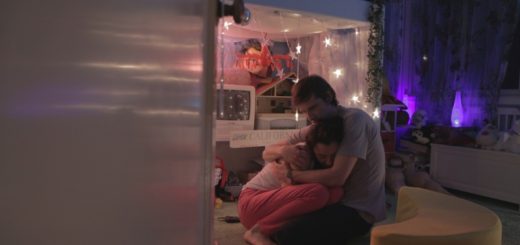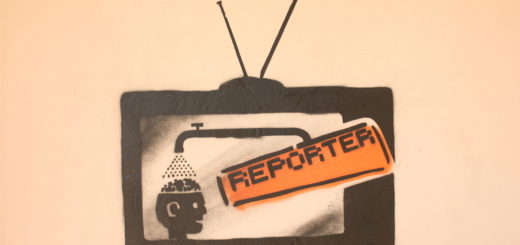ONLY @Nashville Film Festvial
Nashville Film Festival coverage via Jason Sparks Our Man In Nashville
Sometimes history repeats itself, in peculiar ways. At last year’s NIFF, I found myself drawn to one movie for no other reason than the presence of a former cast member from the cult-but-mainstream Broadway musical Hamilton. The cast member was Daveed Diggs (Lafayette and Jefferson), and the film was Blindspotting, ultimately my favorite narrative film at that year’s NIFF, a film I expected (incorrectly, sad to say) to become a national topic of argument and analysis. This year, another film featured an original Hamilton performer, no less than Leslie Odom, Jr., AKA Aaron Burr (“And me? I’m the damned fool that shot him”, etc). The film was Takashi Doscher’s Only, and I don’t think it sets out to spark discussion. I think it sets out to spark depression. It succeeds.
Odom is Will, and Freida Pinto is Eva; we’re never really sure where they live, because what’s more important is when they live—just before the narrative action begins, we see a title card flash onscreen which reads, “Day 400”. What this is the 400th day of is not clear at first, but the series of flashbacks and flashforwards eventually reveal that. Day one, we learn, was the day that, while Will and Eva are pleasantly canoodling in her apartment, the outside world gets caught in a mysterious, seemingly global weather event, as a steady stream of ash begins to fall from the sky. Eva’s roommate is caught out in this storm; she gets back to their apartment, walks in, and promptly collapses.
Will and Eva take her to the hospital, where Will begins to realize what only becomes even more evident over the next 400 days; the ash, whatever its origin, contains a virus that colonizes without impact in men—some men, at any rate—but is ultimately lethal to women—so lethal, in fact, that Eva, who is by that 400th day living in a single room of the apartment, cordoned off by plastic sheeting, is the ONLY (get it?) surviving woman in the world. The actual plot begins on that 4ooth day, when soldiers/stormtroopers/dystopian future jackbooted thugs insist on searching the apartment, lest there be a woman (and, as such, a potential for humanity’s reproductive future) on the premises. (Having forseen that likelihood, Will has built hiding places; having seen similar news stories, the audience draws parallels.)
The raid is a breaking point for Eva, who has never had much of a say in this; she reveals during a tearful fight that the plastic sheeting and so forth was all basically Will’s idea. Fed up with her confinement, and facing another wrinkle in their story that’s also revealed in flashbacks, Will and Eva finally elect to leave the apartment, and head for a remote spot a forest, off the proverbial grid. That’s not as simple a road trip as it may sound, of course, because Eva cannot travel without taping down her breasts and wearing layers of clothing—while her existence as the Only is not actually known to the world, she still travels with the risk of being literally hunted. Which is, of course, exactly the fate that awaits her, at the hands of father-and-son hunters (Chandler Riggs and Jayson Warner Smith, surprisingly human given the horrorshow roles they’re handed here).
Now, of course, with dystopian stories, we usually have a story about the future that’s really a thinly-veiled metaphor for the present; this is not a story about hunting the Other (and reducing women to said Other) by accident, I’m sure. What’s concerning about Only is that, as is also sometimes the case in dystopian stories, the proffered outcome…it’s no Hollywood ending, to say the least. Nor is it, to be fair, a cut-and-dried ending; we know how things look for humanity when the credits roll, but that isn’t set in stone. It’s a well-made film. Editors Josh Land and David Pergolini are faced with what is probably an editor’s most difficult task, telling a story that runs from A to Z, but not starting with A—and as such, deciding which letter should be the starting point. Cinematographer Sean Stiegemeier shoots the few scenes before the ash falls (and all the scenes after their trip begins) in warm, rich colors, whereas days 1-400 are in heavy gray tones—literally, in a sense; a repeated motif is a foul grey residue that Will must remove via showering every time he has been outside the apartment. Pinto’s Eva starts as a Manic Pixie Dream Girl, but becomes human, and equally fragile and strong. Odom will forever be Aaron Burr (sir) to me, but oddly, he carries that same impassioned vulnerability he gave Burr (when Burr actually has it) into this role. He’s still a man frustrated at his surroundings, but this time, he’s right. It’s not a film that will leave you in a particularly light-hearted mood, nor does it have to be; if it leaves you wondering what you can do about the real-life ash falling in our world (you get to decide for yourself what I mean by that), then it has achieved something.






















